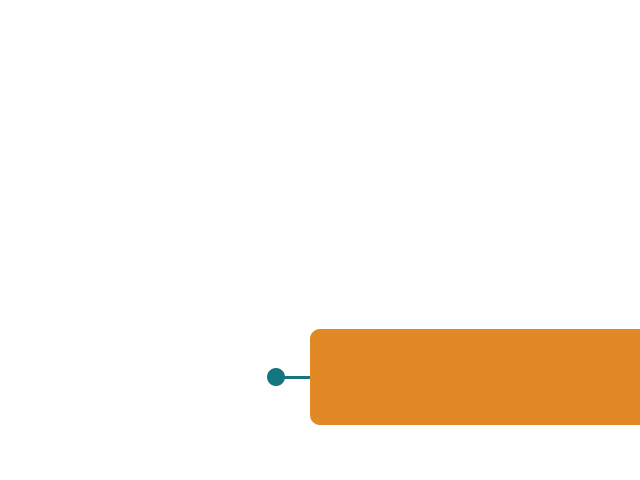
EMDR Therapy Online: Accessible, Stigma-Free Therapy from Home with Pathfinder Recovery
November 7, 2025
Written and reviewed by the leadership team at Pathfinder Recovery, including licensed medical and clinical professionals with over 30 years of experience in addiction and mental health care.
In a world where substance use disorders (SUD) affected 48.5 million Americans in 2023 alone, finding effective, accessible treatment options remains a critical challenge.1
At Pathfinder Recovery, we believe that everyone deserves a chance to heal, regardless of where they are in their journey. We’re here to meet you where you’re at and create your best path forward—all from the security of your own home.
Maintenance medication-assisted therapy (MAT) stands as one of the most evidence-based approaches to treating SUD, yet it remains misunderstood and underutilized.
Maintenance MAT utilizes FDA-approved medications specifically designed to address the biological aspects of SUD. These medications are prescribed based on individual needs, substance use history, and recovery goals.
"Naltrexone/Vivitrol is the most common medication used. It works in two ways, the first is that it blocks endorphins. Since patients don’t get the overwhelming feeling of relief after taking their substance it gives them time to rethink taking a second. The more important way that Naltrexone works is that it suppresses dopamine release in the risk reward pathway. This helps decrease cravings and desire to take their substance. Naltrexone works for alcohol use disorder as well as opioid use disorder. Vivitrol is Naltrexone that comes as a once a month shot. Also for alcohol use disorder there is Acomprasate and Topomax. They both work by increasing the neurotransmitter GABA in the brain without suppressing Glutimate. In this way, they decrease cravings. Another medication is Antabuse, which is pure negative reinforcement. If you drink while taking it, you get very sick. The last medication is n-acetylcystine (NAC) This is an over the counter antioxidant. We believe that it works by decreasing free radicals in the brain and therefore decreasing cravings.
For opioid use disorder, there is Naltrexone/Vivitrol (as noted above). Other medications include Methadone, which is a pure agonist for the opioid receptors. Buprenorphine is a partial agonist as well as antagonist. Buprenorphine comes as a daily medication as well as a weekly or monthly shot."- Dr. David Hendricks, Chief Medical Officer
Maintenance medication-assisted therapy combines FDA-approved medications with behavioral therapies to create a comprehensive approach to treating SUD. Unlike short-term detox approaches, maintenance MAT focuses on long-term stability and recovery support.2
Maintenance medication-assisted therapy for addiction is not simply about substituting one substance for another – it's about providing a foundation for healing while addressing the complex physical and psychological aspects of addiction.
This holistic therapy's approach recognizes that recovery is not a one-size-fits-all process and that medications can play a crucial role in supporting long-term sobriety.
While short-term MAT helps individuals safely withdraw from substances, maintenance medication-assisted therapy provides ongoing support that can last months or even years.
Short-term detox MAT typically lasts days to weeks and focuses primarily on managing withdrawal symptoms. In contrast, maintenance medication-assisted therapy continues beyond the acute withdrawal phase to:
At Pathfinder Recovery, we understand that recovery means different things to different people, and we're committed to meeting you exactly where you are in your journey.
.jpeg)
Maintenance medication-assisted therapy provides a foundation for lasting recovery by addressing both the physical and psychological aspects of SUD.
One of the most significant challenges in early recovery is managing intense cravings that can lead to relapse.
Maintenance medication-assisted therapy works directly on the brain's reward pathways to:
By mitigating withdrawal symptoms and cravings, MAT reduces the inclination to relapse, which significantly lowers overdose risk.
"Every patient should be educated on maintenance medications. Patients who suffer from opioid use disorder have a much higher risk of overdose and death after going through detox. It is important to screen each candidate using specific inclusionary criteria to ensure they are an appropriate fit for the program medically as well as psychologically."- Dr. David Hendricks, Chief Medical Officer
SUD also causes significant changes to brain structure and function. Maintenance MAT helps restore balance to these systems using relapse prevention strategies, which can improve overall mental health.
When brain chemistry begins to stabilize through maintenance medication-assisted therapy, many individuals experience:
These improvements create a positive cycle – as mental health improves, individuals become better equipped to engage in therapy and make positive life changes, which further supports their recovery.
When cravings and withdrawal symptoms are managed through maintenance MAT, individuals can direct their energy toward the psychological and social aspects of recovery.
This shift in focus allows for:
At Pathfinder Recovery, we understand that recovery is not only about treatment – it's about empowerment, healing, and unwavering support. Our approach of virtual individual and group therapy ensures that client receives truly personalized care that addresses all aspects of their recovery journey.
Maintenance MAT utilizes FDA-approved medications specifically designed to address the biological aspects of SUD. These medications are prescribed based on individual needs, substance use history, and recovery goals.

Effective management of OUD often involves the use of FDA-approved medications. Some of the key medications used in maintenance MAT and their benefits for individuals seeking recovery include:
Buprenorphine is a partial opioid agonist that helps reduce cravings and withdrawal symptoms without producing the full euphoric effect of other opioids. When combined with naloxone, it helps prevent misuse.3
Key benefits of buprenorphine in maintenance medication-assisted therapy include:
Research shows that at medium to high doses, buprenorphine is effective at retaining patients in treatment and suppressing self-reported heroin use.4
"The only medications that would develop a dependency are Methadone and Buprenorphine. The thing to remind patients is that these are controlled medications and the disease are regulated. They will prevent withdrawal symptoms and help prevent overdose and death. If patients wish to come off these medications in time, we can do it at a very slow rate."- Dr. David Hendricks, Chief Medical Officer
Methadone is a long-acting full opioid agonist that has been used in maintenance MAT for over 50 years. It's typically dispensed daily at specialized clinics.5
Methadone offers several advantages as part of maintenance medication-assisted therapy, including:6
Unlike buprenorphine and methadone, naltrexone is an opioid antagonist that blocks the effects of opioids.7
Naltrexone in maintenance MAT works by:
Research suggests that injectable naltrexone may decrease relapse rates and extend the median time to relapse.8
Understanding the role of medication in treating AUD is crucial. Some medications used in MAT for the treatment of alcohol use disorder include:
Acamprosate helps restore the balance of brain chemicals disrupted by alcohol use, reducing cravings and supporting abstinence.
In maintenance medication-assisted therapy for AUD, acamprosate reduces post-acute withdrawal symptoms, decreases alcohol cravings, and works best when started after detoxification.
Disulfiram creates an unpleasant reaction when alcohol is consumed, serving as a deterrent to drinking.
As part of maintenance medication-assisted therapy, disulfiram:9
Naltrexone is also effective for AUD, helping to reduce cravings and the rewarding effects of alcohol. When used in maintenance medication-assisted therapy for AUD, naltrexone:10
At Pathfinder Recovery, we're redefining access to maintenance medication-assisted therapy through our innovative telehealth approach.
We believe that geography, transportation issues, or scheduling conflicts should never stand between someone and the care they need.
All maintenance MAT plans require proper medical oversight. At Pathfinder Recovery, our team of licensed professionals works closely with each individual to:
Our team of mental health professional provides expert care that prioritizes both safety and effectiveness in our virtual maintenance medication-assisted therapy program.
[[cta]]
Getting started with maintenance MAT at Pathfinder Recovery begins with a comprehensive virtual assessment.
Our telehealth MAT process follows these steps:
By utilizing advanced technology, we maintain continuous connectivity and accountability throughout your healing journey, ensuring you receive the highest quality care regardless of your location.
Maintenance medication-assisted therapy is most effective when combined with behavioral therapies. At Pathfinder Recovery, we offer a full spectrum of virtual therapy options to complement your medication treatment.
Our virtual therapy services include:
No matter what your background is, our programs are designed to be personally tailored to help our clients achieve their goals and long-lasting wellness.
Harm reduction is a crucial component of our approach to maintenance medication-assisted therapy. This philosophy recognizes that recovery is a journey, not a singular event, and that reducing harm is valuable even when complete abstinence isn't immediately achievable for everybody.

Key harm reduction principles in Pathfinder Recovery’s expert MAT approach include:
Pathfinder Recovery’s harm reduction approach to maintenance MAT works to decrease illicit drug use, with rates of use getting smaller the longer individuals are in treatment.
This gradual improvement allows individuals to build stability and make positive changes at a sustainable pace.
While medications are a vital component of maintenance medication-assisted therapy, they work best when combined with behavioral therapies and holistic approaches.
This comprehensive strategy addresses all aspects of recovery—physical, psychological, emotional, and social.
At Pathfinder Recovery, we provide clinically-robust and truly individualized treatment with dignity. Our approach ensures that maintenance medication-assisted therapy is part of a comprehensive plan that addresses all aspects of your recovery.
Our virtual therapy program incorporates several evidence-based approaches that complement maintenance medication-assisted therapy.
Some of these therapies include:
CBT helps identify and change negative thought patterns and behaviors related to substance use. As part of maintenance medication-assisted therapy, CBT helps:
DBT focuses on emotional regulation, distress tolerance, interpersonal effectiveness, and mindfulness.
Within a maintenance medication-assisted therapy program, DBT helps:
Our team recognizes that addressing underlying trauma is also essential for long-term success, which is why we offer specialized trauma therapies to complement maintenance MAT as well.
Recovery involves the whole person, which is why we also incorporate holistic approaches alongside maintenance medication-assisted therapy.
Our holistic offerings include:
Mindfulness practices help individuals develop awareness of thoughts, feelings, and sensations without judgment.
When combined with MAT, mindfulness can:
Physical activity and body-based practices support recovery by improving physical health and providing healthy coping mechanisms.
Our virtual program includes:
Proper nutrition plays a vital role in healing the body and brain during recovery. Our maintenance MAT program includes nutritional guidance focused on:
By integrating these holistic approaches into treatment, we create a comprehensive recovery program that nurtures all aspects of well-being and supports lasting change.

While some individuals benefit from indefinite maintenance medication-assisted therapy, others may eventually transition off medications under proper medical supervision. This decision should always be personalized and made collaboratively between the individual and their healthcare provider.
Some important considerations for transitioning off MAT include:
If tapering is pursued, it should be done gradually under close medical supervision to minimize withdrawal symptoms and reduce relapse risk. The process may take months or even years, depending on the individual's needs and medication type.
At Pathfinder Recovery, we are committed to providing personalized care that aligns with your specific recovery needs. We support your choices, whether that involves long-term maintenance MAT to maintain stability, or a carefully planned tapering process to eventually discontinue medication.
Recognizing that each person's journey is distinct, we prioritize a treatment plan that honors your individual circumstances.
.jpeg)
When it comes to maintenance medication-assisted therapy, having the right provider can make all the difference in your recovery journey. Pathfinder Recovery offers a unique approach to virtual MAT that combines clinical excellence with compassionate, personalized care.
What sets Pathfinder Recovery's maintenance medication-assisted therapy program apart is our commitment to removing barriers and providing truly individualized care.
Our unique approach includes:
We are the only telehealth provider offering a full continuum of care including virtual detox, peer coaching, MAT, outpatient services, and specialized tracks for diverse needs.
Recovery is a journey, and taking that first step can be the hardest part. At Pathfinder Recovery, we're here to walk alongside you every step of the way, providing the support, expertise, and compassion you need to succeed.
Maintenance MAT has helped countless individuals find stability, healing, and hope in recovery. With Pathfinder Recovery's virtual approach, this evidence-based treatment is more accessible than ever before.
At Pathfinder Recovery, we believe there should be ZERO shame no matter what you are dealing with – be it SUD, mental health challenges, trauma, or any combination of factors.
Whether you're just beginning to explore treatment options or you're ready to start your recovery journey, we're here to help. Our team is committed to providing the information, support, and care you need to make informed decisions about your recovery.
Remember, recovery is possible, and you don't have to do it alone. With Pathfinder Recovery's maintenance medication-assisted therapy program, you can access high-quality care from the comfort and privacy of your own home, setting the foundation for lasting recovery and improved quality of life.
Your home is our foundation. Your future is our mission. Let us help you find your path to recovery today.

November 7, 2025

November 6, 2025

November 6, 2025